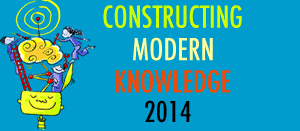For the past year, I’ve been on the National Assessment of Educational Progress (NAEP) Technology Literacy Assessment planning committee. (See my post NAEP Technology Assessment 2012.) The first phase of writing the framework (which is where my committee contributed) is now complete. At the last meeting, we recommended to the NAEP Governing Board that the name be changed to better align the assessment with the common vocabulary and conventions used in K-12.
Simply put, calling the assessment “Technology Literacy” didn’t really capture the breadth of the planned assessment, which will cover technology as anything in the “designed world.” That term includes engineering principles, design and systems in a wide variety of contexts. It goes well beyond the much narrower K-12 use of the term “technology literacy.” In K-12 schools, districts, and state departments of education, “technology literacy” typically means the knowledge and ability to use computers and technology with fluency, efficacy, and safety in schools.
This post outlined some of the issues inherent in the previous name “technology literacy” THE Journal: NAEP Gets It One-Third Right.
But now, the name has been changed to the NAEP 2014 Technology and Engineering Literacy Assessment. I think this aligns better with both the scope of the assessment and the conventions of K-12 schools across the country.
One other change, the date has been pushed back to 2014. This change is due to the time needed to develop computer-based items for this assessment. For the first time, this assessment will be 100% computer based.
You can take a look at the framework at www.naeptech2012.org.
Eventually this will move to a new domain, www.naeptech.org, but this is not up yet (as of 3/10/10).
As someone who is both an engineer and works in technology education in schools, I believe this is a good compromise. I think it will help people better understand the results of this assessment as we move forward. And in the long run, I hope it will spur the design of innovative and diverse learning opportunities for students that combine engineering, IT, programming, math, science, collaboration, communication and many, many different types of technology.
Sylvia

